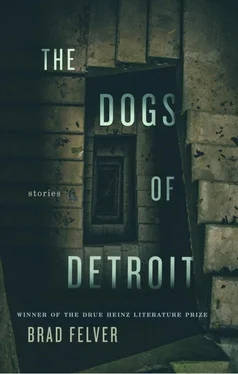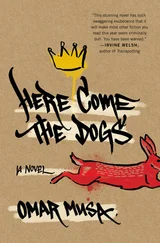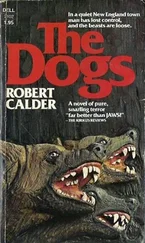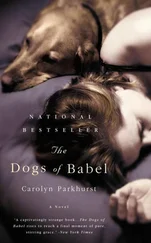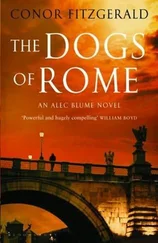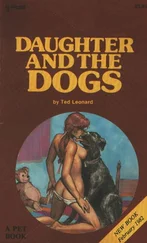From the lone bedroom room barks the rough animal sounds, the uncle atop their mother, his sister. Wiley tries not to picture it, his uncle’s unshaven face, his mother’s clenched cheeks, but the groans rattle through the walls. Even the smell reaches him, the reek of hot sweat and body oil, of the uncle loosing himself into her and then collapsing. In the morning, the mother will emerge first, always, and she will wake Wiley and then Helen with gentle rubs on their backs and shoulders. Time to see the sun, my peacocks, she says to them. Her eyes are sunken and empty, as if their sockets are a size too large.
The father is dead eight years now, smallpox, and they have lived with the uncle this whole time. He has a long, snouty face, all nose and Adam’s apple and heavy stubble. He is a harsh man, hateful of all who draw too near, to Wiley most of all. He works the farm quickly with slipshod fixes, leaving sloppy hammer dents and cockeyed fence posts. He reads poorly and neglects the almanac planting schedules, and the yields suffer. He insists on strict replanting each year, and the parched soil slowly turns to charcoal. When he is angry, he boxes Wiley’s ears red, and if the boy cries out, he shims a screwdriver under the boy’s thumbnail. You must be strong for this world, he says, as if his cruelties are lessons on manhood. He shows Wiley his own thumbs; the dark stains beneath his nails also bulge as if enormous splinters need exhumed. He gawks at Helen in a way that none of them are able to ignore. Wiley is far too scrawny to intervene.
They are beggars squatting on his lifeless land. It is all scalded, its minerals devoured by the wind. Sixty-two acres suitable for planting, most far above the water table. Only the barnyard well reaches it, a narrow socket plunging down to the cold water that they are told to ration. The water is more important than your blood, the uncle reminds them often. No irrigation trenches, and so they plant sweet sorghum and broom corn, both hardy plants with tiny finger roots, and this gives them grain and sugar stalks.
The mother helps harvest bushels of the red grains, flours much into a sorghum porridge and sometimes a dense flatbread. The sweet stalks his uncle feeds into the mule-driven press for the sugar. The mule is his most valued possession because, like all of its kind, it is sterile. When it dies, there is no replacement. He boils the sugar down into blackstrap molasses. Half of this syrup they send west to Denver for quick profits. The other half is distilled into a dark rum that he casks and displays on the front porch with a sign: Fresh Sorghum Rum, $6/gallon . The salesmen and grain haulers passing through on their way to Denver slowly bleed the cask, fill water jugs and coffee cans, which are sold for a quarter extra. If the rum has not sold by winter, the uncle loads it onto the ancient Hudson and drives the length of the county, stays gone several days, stopping at each door to hock it for firewood and seeds and oil to last them through winter. He takes with him all but a dozen matches, much of the flour, even the children’s shoes. His family must not flee. The mule he leaves behind, and Wiley is to feed it before breakfast, before dinner.
With the uncle gone Wiley squares his shoulders, sets box traps for muskrats and prairie dogs, guts and cleans them, leaving his pale hands heavy with blood and stink that he cannot wash off. He brings them home to his mother, who fries them in the skillet.
They do not sit in silence at the kitchen table, and his mother’s eyes do not hang so low. They wait for the uncle to return.
You should hack off his mule’s hooves while he’s gone, Helen says to Wiley. The mother scowls, but then turns away and smiles, and Wiley laughs, and they all laugh. We should mince them up and sprinkle his porridge, she says, and they continue to laugh, though Helen was making no joke. She has planned much worse things for her uncle.
The uncle claimed once that his bond with the mother is of necessity and not pleasure. He wished it could be another way, but they must survive. He pointed to Wiley’s narrow shoulders and bent posture. If the mule dies, where will we be then? he said. We must grow the family. How much can I do alone? But there is no new child, and it is not merely hope that steers him on all this time.
The uncle is gone longer this year, nearly two weeks now peddling the rum, and supplies run low. The wheat flour can be measured by the spoonful. The mother mashes the last of the sorghum grain and bakes a waffled cake that cuts their gums. For several days they eat spoonfuls of molasses atop Wiley’s fried vermin, and this hides the gamey bitterness. But the molasses bucket runs low, so the mother brews bitter dark coffee to help mask the flavor and swell their stomachs, and her children do not complain about this or anything.
Nights, when the temperature plummets, the mother sets outside all four mugs, filled with water, places sticks in each, so that when it freezes, the iced sticks might resemble real food that can be held and chewed. She prays each evening that someday her children will know the taste of ice cream, the scent of muskmelon.
Wiley must trot across the frozen ground with bare feet to feed the mule from the dwindling baskets of sorghum feed. Often the animal eats from its own dung pile, burrowing its snout and finding undigested grains. Wiley scratches the mule’s ears, unable to dislike the animal simply because it belongs to his uncle. It is a stupid and helpless thing and so perfectly good-natured, staid from breeding methods and unable to escape its destiny as a muscled serf.
Evenings the mother and children play musical chairs in the kitchen, burning the fire low until it is only glowing coals that they rake and draw the bellows on for hours, and they feel as if they are stealing heat this way. The mother hums a tune as they step around the twin chairs. Helen times the endings well, managing to step on Wiley’s feet or tug on his belt loops or dive lengthwise across both chairs as the song ends, and Wiley always waits too long. She feels a power in this, and Wiley does not complain or stymie her but laughs at each maneuver, not simply because he loves her but also because her freckled, ornery face stuns him. She is a beautiful little thing, cherubic and effectual, and Wiley suffers this like a swelling and private plague.
Outside, the winter has descended upon them, the cutting winds unravelling like a great rug, shaken from hundreds of miles away, so barren and free of clutter is the landscape. The dust kicks up, frozen and painful, pelting their faces. When they stand outside, backs to these gales, it nearly bends them over, like field-weary slaves yielding to the long whips of the wind.
The supplies are nearly gone, and the uncle has still not returned. Maybe someone shot him in his stupid monkey brain, Helen says. Pow! she says, and mimics a pistol shot to the temple. Wiley smiles at her, and yet he knows the awful truth, that his uncle is repugnant but vital. Wiley cannot work the farm alone, not with his narrow shoulders, his bony forearms.
Helen flashes Wiley her thin smile, has him guide the prize mule onto the front porch, which sits not thirty paces off the roadway to Denver. She latches a rope to its bridle and onto the rope she slides a small golden ring—the father’s ring—stolen from the uncle’s chest. She ties the rope’s other end to the support post, and so the ring dangles there between the two like a golden tightrope walker. From the mule’s bare back she hangs a sign: Unstring the Golden Ring and Keep It! $1/try!
You can’t get the ring off, Wiley tells her very simply. Not without unhitching the mule.
They won’t know that, Helen says. They’ll think it’s a puzzle. And they’ll be anxious to stop and stretch their legs.
Читать дальше
